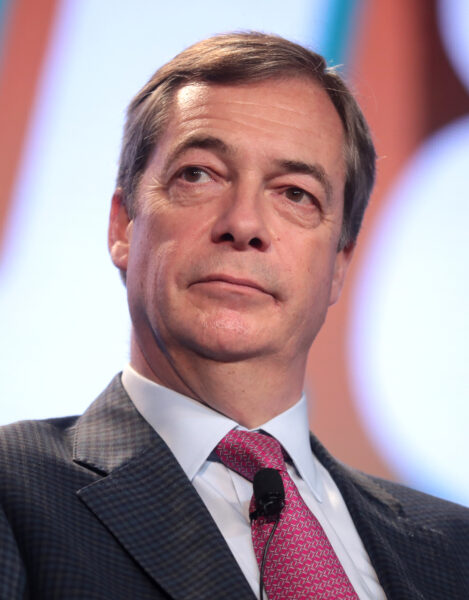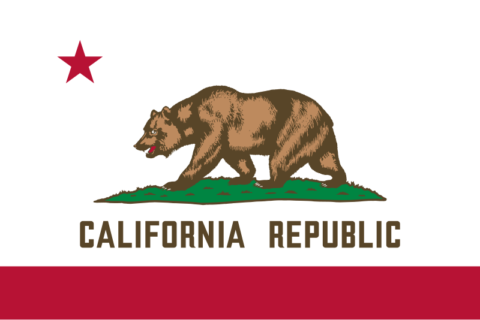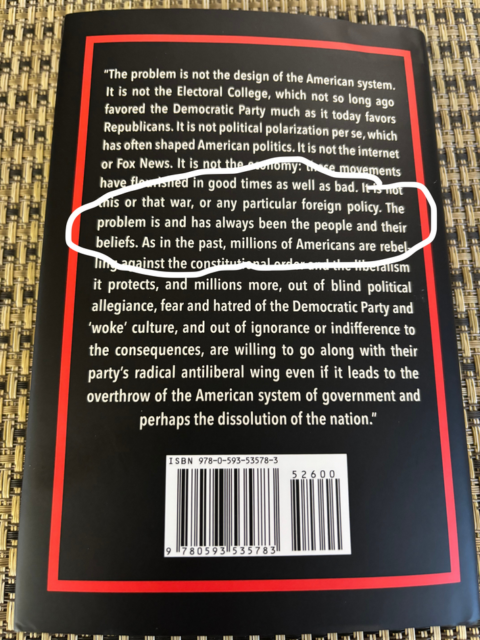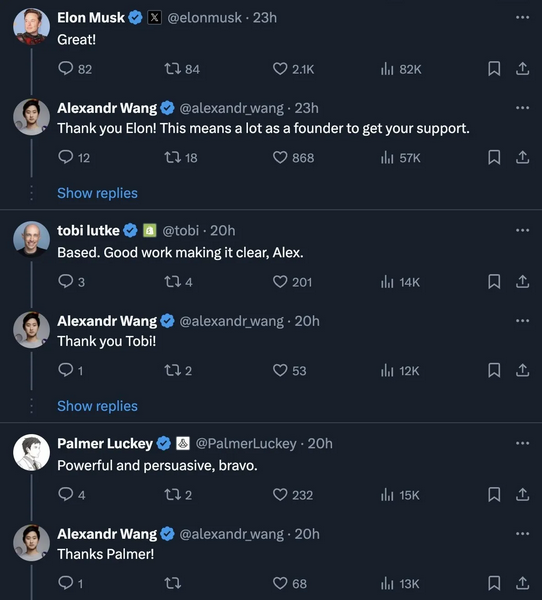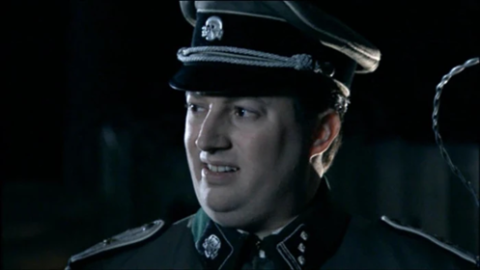As televised liberal-conservative dust-ups go, this one doesn’t quite hold a candle to the celebrated Bill Buckley vs. Gore Vidal cat fight during the 1968 Democratic National Convention. After wordsmith Vidal insisted that, no, really, the author of God and Man at Yale was a “pro-crypto-Nazi”, Buckley (who famously signs his letters in National Review, “Cordially …”) stopped speaking in his native Latin and declaimed: “Now listen, you queer, stop calling me a crypto-Nazi or I’ll sock you in you goddamn face and you’ll stay plastered”. That’s good stuff — and it was on broadcast TV for god’s sake.
Nick Gillespie, “Bob Novak: ‘That’s Bullshit … Goodnight, Everybody!'”, Hit and Run, 2005-08-05.
June 27, 2024
QotD: Televised debates
June 26, 2024
The Korean War Begins – Week 1 – June 25, 1950
The Korean War by Indy Neidell
Published 25 Jun 2024Despite the fact that there have been clear signs that they might soon invade South Korea, when the North actually does in force on June 25th, 1950, it comes as a complete shock to the world. But is this a full invasion, or just cross border raids such as there were in 1949? And is there something more behind this? Stalin’s Soviets? Mao’s Chinese? And how will the world react? Find out this week as our week by week coverage of the war begins!
(more…)
June 25, 2024
“Nigel Farage’s sin […] was to tell the truth which our rulers and their bought, sycophantic media are desperate to hide from us”
As the British general election rumbles into its final days, most media outlets reacted very strongly to Nigel Farage’s willingness to break with the narrative over the outbreak of the Russo-Ukrainian war:
Nigel Farage has really got the elites and their prostitute mainstream media panicking, this time by being the only politician who dares tell the truth about the origins of the Russia-Ukraine war.
First let me stress that I am not condoning Putin’s invasion of Ukraine. But Putin has made it very clear for at least the last 15 years that he saw Ukraine and Georgia, which both have long borders with Russia, joining Nato as an existential threat to his country and warned “not an inch eastwards”.
The West arrogantly ignored Putin’s warnings. That was dumb.
At a conference in April 2008, where Putin was invited to address Nato leaders, he warned that inviting Ukraine and Georgia to join Nato, and thus parking Nato troops and missiles directly on Russia’s borders, would be seen as an existential threat to Russia’s security. This was even reported in the BBC’s in-house rag, the Guardian, on April 4 2008: “The Russian president, Vladimir Putin, today repeated his warning that Moscow would view any attempt to expand Nato to its borders as a ‘direct threat'”.
In December 2021, Putin yet again warned the West that allowing Ukraine and Georgia to join Nato would be unacceptable, in the first minute of this three-minute video. In this video Putin (sensibly in my opinion) asks whether the US would allow Russian troops and missiles to be positioned along its borders with Canada or Mexico and reiterates his “not an inch eastwards” threat.
Yet in January 2022, the US presented its written response to Russian demands on Ukraine not joining Nato and on Nato troops being withdrawn from Romania and Bulgaria, but made clear that it did not change Washington’s support for Ukraine’s right to pursue Nato membership, the most contentious issue in relations with Moscow.
The reply, which was delivered to the Russian Foreign Ministry by the US ambassador in Moscow, John Sullivan, repeated the US offer to negotiate with Russia over some aspects of European security, but the Secretary of State, Antony Blinken, said the issue of eventual Ukrainian membership of the alliance was one of principle.
Blinken was speaking hours after his Russian counterpart, Sergei Lavrov, threatened “retaliatory measures” if the US response did not satisfy the Kremlin.
“Without going to the specifics of the document, I can tell you that it reiterates what we said publicly for many weeks, and in a sense for many, many years. That we will uphold the principle of Nato’s open door”, Blinken said, adding: “There is no change. There will be no change.”
June 24, 2024
Raise a glass of your favourite microbrew to … Jimmy Carter?
Glenn “The Instapundit” Reynolds visits a local brewing festival in Knoxville and remembers what it was like before — of all people — Jimmy Carter began the process of deregulating the beer industry by legalizing homebrewed beer in 1978:
This weekend I want to the Knox Brewfest at the Knoxville World’s Fair Grounds. As the name suggests, it was a collection of most of the local micro-breweries, each with a booth offering samples. (There were also a few bigger operations, like Sierra Nevada, Abita, and Paulaner). I wore my Hamm’s Beer Hawaiian shirt, which was a surprisingly big hit.
And there were some lessons, about which more later.
Hamm’s doesn’t really exist anymore except as a sometimes-produced minor product of Coors, which bought the trademark after it passed through the hands of numerous other companies. But it’s not forgotten!
The beer was good and the crowd was cheerful.
Mostly me, and my friend Jim (who I’ve known since junior high) were reflecting on the vast improvement in the world of beer in America, and particularly in Knoxville. As late as, oh, 1990 or so, you could go into almost any bar in Knoxville and if you asked what kind of beer they had you’d get an answer like this: “We’ve got everything! Bud, Bud Light, Miller, Miller Light, Coors, Coors Light – anything you want!”
It’s easy to take the craft-brewing revolution for granted, but it brought about huge changes and for the better. Nowadays, the beer scene in America tends to be better than that in Europe. No, really. In fact, one of my former research assistants, who practices law in Belgium now, brought over a couple of Belgian friends who wanted to see Tennessee. I met them for lunch at Barley’s in the Old City, to hear a bluegrass show and eat pizza and drink beer. They were very impressed with the fifty or so taps that Barley’s offers.
Back home they said, the bars are usually owned by the breweries and only sell their own brews, so you might have only three or four varieties, all from the same label. Nothing like this.
[…]
This deregulatory story started (like airlines and trucking deregulation) with Jimmy Carter of all people. Despite his (often true) reputation as a bossy micro-manager, he was an engineer and a rationalist. That worked out poorly in foreign policy, but led him to undo a number of irrational regulatory structures, one of which was the limit on home beer production. Carter signed a bill legalizing homebrewing in 1978, and those homebrewers were the nucleus of the craft beer movement a decade or so later.
June 23, 2024
California has “a governing class that wants you to give them power, then shut up and go away”
Chris Bray illustrates some of the many ways that California’s elected politicians are working to ensure that mere voters won’t interrupt their urgent and necessary work:
The Taxpayer Protection Act, a proposed referendum that got enough signatures to qualify for the November ballot, would have required voter approval for all new state and local taxes. State election officials agreed that it met the qualification threshold, and planned to put it before the voters. Democratic officeholders sued, with considerable support from public employee unions and interest groups, and the California Supreme Court ruled this week that the measure may not be placed on the ballot — because it improperly proposes to revise the state constitution, rather than merely amending it. You can watch them try to parse that distinction here, for seventy murky pages. You can change the state constitution through the referendum process, but you can’t change the state constitution through the referendum process. See, totally clear.
At the same time, California Governor Patrick Bateman is telling the organizers of a ballot measure that would increase penalties for drug and theft crimes — after a decade of sharply reduced penalties — that he’ll punish them by blocking criminal justice reform measures in the legislature unless they pull their measure from the ballot. The intended message is a very clear threat: If you insist on your ballot measure and lose at the polls, you’ll be punished with a complete blockade on your agenda through legislative means, for as long as we can manage it.
And a parental rights proposition that aimed for a place on the November ballot — falling short in its efforts to gather enough signatures — ran into a wall when the attorney general’s office assigned it a misleading label that would have described it to voters as a repressive measure that was intended to hurt children.
So a Progressive reform, the great 20th-century transition to direct democracy, is running into a progressive wall of resistance in the 21st century. California Democrats are fighting to limit the likelihood that voters will interfere with their agenda.
People outside California often shrug at the decline of the state, because Californians are just getting what they voted for. But that view misses a bunch of strangeness and ambiguity in a place that has tended to put Democrats in office, then limit their efforts with an ideologically inconsistent hodgepodge of conservative and libertarian ballot measures. The governor and the state legislature just sued to prevent their own voters, the people who sent them to public office, from voting on the new taxes they create. Democrats against direct democracy — a governing class that wants you to give them power, then shut up and go away.
This is not merely a California problem. I wrote a few days ago about the scumbag Robert Kagan and his idiotic book warning that America is facing a rebellion. Here’s the back cover of the book, and I’ve used sophisticated media software to circle the important part:
“The problem is and has always been the people and their beliefs.” This is what the American governing class believes, now. See also the pro-democracy warrior Tom Nichols and his recurring theme about the repulsive people of an ignorant country. We need to protect democracy by getting all the trash that makes up the population to somehow go away and stop bothering their wise and benevolent betters.
The great point of cognitive slippage in American governance has been the degree to which Americans have been willing to vote for officeholders whose agendas they then try to block through lawsuits, referendums, and popular resistance. We’ve voted for shit sandwich over and over again, then declined to eat the whole sandwich. The governing class is now announcing that we’re no longer allowed to refuse the complete meal. You may not have a ballot measure on that.
In the near term, and in the medium term, that pivot leads to greater friction and accelerated decline. In the longer term, preventing people from limiting the aggressive failure of the governing class can only make that failure more apparent. Geological faults that have a lot of small movements release tension in a series of minor earthquakes; faults that can’t release tension through small movements eventually have one big one. We’ll eventually recognize the California Supreme Court’s decision this week as a Pyrrhic victory. There will be more of these, in a political system of increasing brittleness.
Okinawa Ends – WW2 – Week 304 – June 22, 1945
World War Two
Published 22 Jun 2024Mitsuru Ushijima’s forces are defeated and the Battle of Okinawa is officially over. However, since most of the Japanese fought to the death, victory comes at a bloody cost – over 50,000 US casualties and over 100,000 Japanese and also possibly that many Okinawan deaths. The fight on North Borneo continues, there’s a raid on Wake Island, and the Japanese powers that be meet to actually discuss making some sort of peace with the Allies.
00:00 Intro
01:25 Truman And The Interim Committee
05:00 Battle Of Okinawa
08:06 The End Of Okinawa
13:22 Raid On Wake Island
14:23 Battle Of North Borneo
15:33 Hirohito Wants Peace
16:54 Conclusion
(more…)
The Original Chef Boyardee Spaghetti Dinner
Tasting History with Max Miller
Published 13 Mar 2024Absolutely fantastic tomato and meat sauce served over spaghetti tossed with butter and parmesan
City/Region: Cleveland, Ohio
Time Period: 1930sChef Boyardee was not born in Cleveland (sorry, 30 Rock), but in Borganovo, just outside of Piacenza in Italy. And his name was not Hector Boyardee, but Ettore Boiardi (boy-AR-dee). He opened an Italian restaurant in Cleveland in 1924, where the food was so popular that he frequently sent patrons home with bottles of his spaghetti sauce.
We can’t know exactly what that original sauce was, but this is from a family recipe and is probably pretty close. And it’s phenomenal. It’s fairly simple, but so good. You get a lot of the fresh basil, and the creaminess from mixing the butter and parmesan directly with the pasta is delicious. I don’t often make dishes from the show again, but I can see myself making this any day of the week.
(more…)
June 21, 2024
June 20, 2024
The “Idiot Nephew Theory” of show business management
Ted Gioia recalls his hopes of getting into the entertainment industry after graduation:
The story of how I became a strategy consultant is shameful.
I was a student at Stanford’s Graduate School of Business, and needed a job after graduation. I wanted to work in the music or entertainment industries — but I soon learned this was an impossible dream.
They didn’t want me. And they didn’t want my classmates either.
Hundreds of companies came to our business school to recruit talent, and they included most of the leading US corporations. So I talked with everybody — Coca Cola, Morgan Stanley, Atari, Procter & Gamble, you name it.
But no record label or movie studio ever showed up. They didn’t even send job listings.
Can you guess why?
I asked around on campus and was told the following (off the record):
Come on, Ted. You will never see the entertainment business recruit here. Those folks are not looking for business talent.
They give the choice jobs to their family members — the idiot nephew gets hired, not an MBA. Even better if it’s an idiot son.
And if there are other openings? Well … You’ve heard about the casting couch, haven’t you? Let me give you a hint — that couch isn’t just for auditioning the cast.
But you wouldn’t want a job there even if they gave you one. When time comes for a promotion, the drooling idiot nephew moves up — not you.
I’ve never shared that story before — because I know how people inside the music business hate hearing it.
And maybe it’s not a fair story.
All I can say is that I found this advice very helpful. I stopped planning on a career in the music business. And I also developed a very useful theory to explain why record labels are so bad at making strategic decisions.
I call it the “Idiot Nephew Theory”:
THE IDIOT NEPHEW THEORY: Whenever a record label makes a strategic decision, it picks the option that the boss’s idiot nephew thinks is best.
And what does the idiot nephew decide? That’s easy — they always do whatever the company lawyer recommends.
Maybe this theory is wrong. All I can say is that it helps me predict events in the entertainment industry with a surprising degree of accuracy.
I always operate on the assumption that there’s no business strategy in the music or movie business — only legal maneuvering.
Years later, when the music business got totally reamed by tech companies — a phase we’re still living through, by the way — I wasn’t surprised in the least. The record labels respond to every new music technology by litigating, but whenever they encounter a company with more legal clout than them (Apple or Google/YouTube, for example), they simply gave up.
In the future, you can test this theory yourself. You will see that it possesses great explanatory power.
The birth of para-rescue
At The War Room, Dr. Robert Lyman discusses an air crash in 1943 and the innovative and daring rescue of the survivors using parachutes:
The birth of para-rescue can be placed in operations across the Hump airlift in 1942 and 1943. The story of the crash of Flight 12420 was a central part of the story.
The story itself is extraordinary. In 1943 a Soviet spy inside the predecessor organization to the CIA and a proud descendant of the famous Southern leader General Robert E Lee, on his way to China to meet General Dai Li, the mysterious and secretive Kuomintang intelligence chief; a celebrated American journalist sent by President Roosevelt to ascertain the “truth about China”; and General “Vinegar Joe” Stilwell’s political adviser; together with eighteen others — American and Chinese — survived a C46 air crash on the mountainous and remote border between India and Burma. It was, and remains, the largest evacuation of an aircraft by parachute, and, given the fact that even the crew had never been trained in the technique, it was a miracle that so many survived. But they fell with their crippled plane from the frying pan into the fire. On disentangling themselves from their parachutes, the twenty shocked survivors soon found that they had arrived in wild country dominated by a tribe that had an especial reason to hate white men. The Nagas of the Patkoi Hills on their remote and unsurveyed land were notorious headhunters, who continued — despite the feeble wrath of distant British imperial authority — to practice both slavery and human sacrifice. Their specialty was the removal of the heads of their enemies — often women and children — achieved with a swipe of ugly, razor-sharp daos. On two occasions in recent years their village, or parts of it, had been burned to the ground and their warriors killed in running battles with sepoys sent to teach the villagers a lesson and to exert the authority of the Raj.
Nevertheless, and against all the odds, all but one of the twenty-one passengers and crew on the doomed aircraft survived. The story of the extraordinary adventure of those men among the Nagas of Pangsha and of their rescue by the young representative of the distant imperial power, the British deputy commissioner who arrived wearing “Bombay bloomers” and stout leather walking shoes, carrying a bamboo cane, and leading an armed party of “friendly” Nagas, is told in my book Among the Headhunters. In their meeting in some of the world’s most inaccessible and previously unmapped terrain, three very different worlds collided. The young, exuberant apostles of the vast industrial democracy of the United States came face-to-face with members of an ancient mongoloid race, uncomprehending of the extent of modernity that existed beyond the remote hills in which they lived and determined to preserve their local power, based on ancient head-hunting and slaving prerogatives. Both groups met — not for the first time for the Nagas, whose village had been burned twice, in 1936 and 1939, because of persistent head-hunting — the vestiges of British authority in India, disintegrating as the Japanese tsunami washed up at its gate.
One of the reasons for the survival of the men whose aircraft fell to earth that tumultuous day was the quick thinking, rapid action and spontaneous sacrifice of a group of US servicemen at the airbase from whence the aircraft departed that morning, Chabua. One in particular needs calling out, thirty-six-year-old ATC wing surgeon Lieutenant Colonel Don Flickinger. He had been duty medical officer at Pearl Harbor during the Japanese attack on December 7, 1941 and in 1943 found himself stationed in the upper reaches of Assam as part of the mammoth Hump airlift to China.
On the day the C46 went down over the rugged Paktoi ranges, the dividing line between astern India and Burma in the first leg of the journey to China, a C47 sent up to see if it could find the wreckage, and found the survivors waving from a remote village high in the hills. Using ground signalling panels the C47 dropped to the survivors they indicated that at least one of the party was badly injured. When the C47 returned to Chabua with the news that survivors were seen in the sprawling village and its location pinpointed on the map, the British deputy commissioner gave the Americans the grave news that the men were likely to be in grave danger. The villagers were, unknown to the survivors, the most practised headhunters of the region, a powerful and unruly tribe who were notorious for their violence. It was unlikely that the men would survive the encounter.
“Surely the only way to defeat racism and homophobia is to treat ethnic and sexual minorities as incapable of high achievement and in need of a leg up from their betters?”
Andrew Doyle on a radical new approach to hiring that might just catch on:
With the inexorable spread of DEI – Diversity, Equity and Inclusion – across the western world, it’s refreshing to see at least one major company resist the decrees of this new religion. This is precisely what happened this week when Scale, an Artificial Intelligence company based in San Francisco, launched a new policy to ensure that its employees were hired on the basis of – wait for it – being the most talented and best qualified for the job.
This innovation, which sees race, gender and sexuality as irrelevant when it comes to hiring practices, should hardly be considered revolutionary. And yet in a world in which the content of one’s character is less important than the colour of one’s skin, to treat everyone equally irrespective of these immutable characteristics is suddenly deemed radical.
Scale’s CEO, Alexandr Wang, explained that rather than adopt DEI policies, the company would henceforth favour MEI, which stands for Merit, Excellence, and Intelligence. He explained the thinking behind the new scheme in a post on X.
There is a mistaken belief that meritocracy somehow conflicts with diversity. I strongly disagree. No group has a monopoly on excellence. A hiring process based on merit will naturally yield a variety of backgrounds, perspectives, and ideas. Achieving this requires casting a wide net for talent and then objectively selecting the best, without bias in any direction. We will not pick winners and losers based on someone being the “right” or “wrong” race, gender, and so on. It should be needless to say, and yet it needs saying: doing so would be racist and sexist, not to mention illegal. Upholding meritocracy is good for business and is the right thing to do.
One can already hear the likes of Robin DiAngelo and Alexandria Ocasio-Cortez screaming in fury at this blatant implementation of good old-fashioned liberal values. Surely the only way to defeat racism and homophobia is to treat ethnic and sexual minorities as incapable of high achievement and in need of a leg up from their betters?
It is instructive to compare reactions from the Twittersphere (now X) and Instagram, as one X user has done. If nothing else, the comparison reveals how the divide in the culture war is playing out on social media since Elon Musk’s takeover. On X, major figures in the corporate world such as Tobias Lütke (CEO of Shopify), Palmer Luckey (founder of Oculus VR) and Musk himself have congratulated Wang on his new initiative.
By contrast, here are some of the responses on Instagram:
You’re ‘disrupting’ current hard-fought standards you don’t like, by reverting to a system rooted in bias and inequality that asks less of you as a hiring manager and as a leader
– Dan Couch (He/Him)Curious to see how hiring processes can effectively (and objectively) measure one’s ‘merit’, ‘excellence’, and ‘intelligence’, all of which are very subjective terms
– Cole Gawin (He/Him)What is merit and how do we measure it?
– Rio Cruz Morales (They/Them)This sounds a lot like excuse making for casting off DEI principles
– R.C. Rondero De Mosier (He/Him)The pronouns, of course, signify membership of the cult, and so we should not be surprised to see the sentiments of its minions mirroring each other so closely. What Wang is proposing of course builds equality into the hiring system and, contrary to these complaints, it is entirely possible to measure merit objectively. This, after all, is the entire point of academic assessment. The arguments against merit can only be sustained if one presupposes that systemic inequalities are ingrained within society, that all of these relate to the concept of group identity, and that adjustments have to be made accordingly to guarantee equality of outcome.
June 19, 2024
Soviet America in decay
At The Free Press, Niall Ferguson invites us to consider that America, not China, has taken the place of the Soviet Union in the post-Soviet world:
The witty phrase “late Soviet America” was coined by the Princeton historian Harold James back in 2020. It has only become more apposite since then as the cold war we’re in — the second one — heats up.
I first pointed out that we’re in Cold War II back in 2018. In articles for The New York Times and National Review, I tried to show how the People’s Republic of China now occupies the space vacated by the Soviet Union when it collapsed in 1991.
This view is less controversial now than it was then. China is clearly not only an ideological rival, firmly committed to Marxism-Leninism and one-party rule. It’s also a technological competitor — the only one the U.S. confronts in fields such as artificial intelligence and quantum computing. It’s a military rival, with a navy that is already larger than ours and a nuclear arsenal that is catching up fast. And it’s a geopolitical rival, asserting itself not only in the Indo-Pacific but also through proxies in Eastern Europe and elsewhere.
But it only recently struck me that in this new Cold War, we — and not the Chinese — might be the Soviets. It’s a bit like that moment when the British comedians David Mitchell and Robert Webb, playing Waffen-SS officers toward the end of World War II, ask the immortal question: “Are we the baddies?”
I imagine two American sailors asking themselves one day — perhaps as their aircraft carrier is sinking beneath their feet somewhere near the Taiwan Strait: Are we the Soviets?
Yes, I know what you are going to say.
There is a world of difference between the dysfunctional planned economy that Stalin built and bequeathed his heirs, which collapsed as soon as Mikhail Gorbachev tried to reform it, and the dynamic market economy that we Americans take pride in.
The Soviet system squandered resources and all but guaranteed shortages of consumer goods. The Soviet healthcare system was crippled by dilapidated hospitals and chronic shortages of equipment. There was grinding poverty, hunger, and child labor.
In America today, such conditions exist only in the bottom quintile of the economic distribution — though the extent to which they do exist is truly appalling. Infant mortality in the late Soviet Union was around 25 per 1,000. The figure for the U.S. in 2021 was 5.4, but for single mothers in the Mississippi Delta or Appalachia it is 13 per 1,000.
The comparison to the Soviet Union, you might argue, is nevertheless risible.
Take a closer look.
Nazi Werwolves: Post War Terror – War Against Humanity 135
World War Two
Published 18 Jun 2024The guns are silent in Germany but the Allied Forces continue to suffer a flurry of bombings, assassinations, and shootings. Who is to blame? Well, the press suspects the Nazi Werwolves – terroristic bands of men, women, and children determined to carry on Hitler’s war. But just how serious is this violence really, and how many of the attackers are true believing Nazi fanatics?
(more…)
Why the US Lost the Tet Offensive Despite Beating the NVA
Real Time History
Published Feb 16, 2024After years of boots on the ground and bloody combat in Vietnam, US officials are publicly confident. The strategy of eliminating the Viet Cong is working. The North Vietnamese communist forces are on their last legs and victory is only a matter of time. Or so they say. But as 1968 and the traditional lunar new year festivities begin, US and South Vietnamese troops find themselves on the receiving end of a formidable North Vietnamese surprise attack: The Tet Offensive.
(more…)
June 18, 2024
Freddie deBoer contra J.J. McCullough on Conspiracy Theories
I saw JJ’s latest video pop up on my YouTube subscriptions page, read the headline and winced slightly. I generally like JJ’s videos even when I disagree with his presentation or interpretation and from the title, I thought “No, ‘many conspiracy theories’ did NOT ‘turn out to be true'” would require a fair bit of, uh, curation of the theories that get discussed. Freddie deBoer — who I disagree with much more than I do with McCullough — had a similar reaction:
The latest video from conservative Canadian YouTuber JJ McCullough displays many of the attributes that make his perspective unique — he’s genuinely a right-wing figure but an arch institutionalist, a gay Millennial with the kind of vague social libertinism common to a lot of libertarian-leaning conservatives but something of a scold, a Canadian patriot who relentlessly defends the United States from the kinds of criticism of Americanah that you might associate with Europe or, well, Canada — critiques of our provincialism, our consumerism, our boorish tendency to shove the rest of the world around. McCullough likes all of that stuff, more or less, while living a cosmopolitan and vaguely-arty lifestyle in groovy Vancouver. He’s perhaps best known for his war with Montreal, Francophone Canadians, and the entire province of Quebec, which fits his general esteem for a certain kind of capital-R Reasonable Anglophilia.
He reminds me, strangely, of a certain kind of secular anti-atheist, the type who still gets mad about the New Atheists despite the complete collapse of that subculture and whose own lack of belief doesn’t prevent them from waxing poetic about the glories of religion. I have a friend from grad school who grew up in an extremely repressive Christian community when she was young, and who describes leaving as an “escape”. (The kind of community where she and her sisters wore wrist-to-ankle dresses every day of their lives no matter the Oklahoma heat, weren’t allowed TV or radio, absorbed lots of corporal punishment, that sort of thing.) She has very, very little patience for people who are so annoyed by internet atheists that they become in effect advocates for religion; as she says, this kind of vague fondness for religion among the irreligious could only occur to someone who never had to live the way she did. I sort of see the same thing in McCullough — he idealizes certain aspects of America’s ethos because he has never had to live with the consequences of being surrounded by people who believe in it, who consciously or unconsciously demand that everyone else believe in it.
Anyhow, this new video is about conspiracy theories. Conspiracy theories are a good topic for understanding McCullough’s very particular ideological makeup. Conspiracy theories are famously a cross-ideological phenomenon, with both left conspiracy theories and right conspiracy theories but also conspiracy theories that don’t fit neatly into either, like 9/11 trutherism. As I said, McCullough is an institutionalist, a small-but-good government sort of guy (or so I take it) who places a great deal of value in official claims, institutions, and experts, and so he’s naturally distrustful of conspiracy theories. And he demonstrates that antipathy in this video through poking holes in a few clickbaity articles listing conspiracy theories that turned out to be true. This all amounts to feasting on a banquet of low-hanging fruit, but it’s not an illegitimate way to approach the question. I just don’t like his conclusions.
The key to McCullough’s bit here is that he doesn’t dispute that the named conspiracy theories (or “conspiracy theories”) that are asserted to be true are true. Rather, he operates by insisting that every identified conspiracy theory is in fact not a conspiracy theory according to his preferred definition. It’s not sufficient for a conspiracy theory to be broadly thought of as a conspiracy theory; it has to comport to specific rules he has devised for what a conspiracy theory entails. Effectively, that means that a conspiracy theory is only a conspiracy theory if it satisfies criteria endorsed by no one but JJ McCullough. I can’t decide if this is an isolated demand for rigor or a No True Scotsman, but either way, McCullough is here insisting on an unusually stringent definition of a conspiracy theory for the purpose of dismissing the idea that any conspiracy theories are true. And there’s a version of this that isn’t entirely wrong; there’s a tautological sense in which all conspiracy theories are false because being false is part of that definition of a conspiracy theory. But McCullough isn’t using that definition, just a particularly odd one that makes his task easier.
So the fact that cigarette manufacturers knew that cigarettes were very bad for your health but conspired to hide this fact from the public is not a conspiracy theory, according to McCullough, because other people of that era suspected that cigarettes caused lung cancer. (Actually proving that took a very long time, at least according to modern standards of causality.) I find this argument powerfully strange! You had a group of powerful people, they indisputably knew that cigarettes were very bad for your health, they indisputably conspired to suppress that information, they were fairly effective at that task. The fact that some early whistleblowers tried to raise the alarm is simply irrelevant. Check out my own proprietary formula.
Group of Powerful or Influential People + Nefarious Intent + Secrecy + Active Conspiring + Negative Consequences, Real or Potential = Conspiracy TheoryThat’s a conspiracy, brother, and the tobacco company bad behavior fits. Long before information about their coverups became public knowledge, people were talking about the possibility that the tobacco companies were up to that exact bad behavior. Theorizing, you might say.

